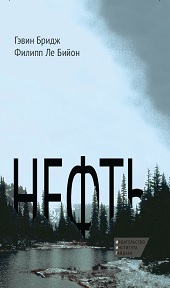Oil

Gavin Bridge and Philippe Le Billon
Translated from English by N. Edelman; scientific editor of the translation T. Drobyshevskaya. — Moscow: Gaidar Institute Press, 2015. — 344 p.
ISBN 978-5-93255-398-5
Oil permeates our daily lives. It is the plastic we touch and the food we eat. Oil policy in the 20th century was a policy of abundance management, state power, and market growth. The legacy of this century of abundance includes the depletion of traditional oil reserves, volatile prices, climate change, and persistent poverty in many oil-rich countries. The oil sector today is in need of reform.
In this in-depth study of the world's richest industry, Gavin Bridge and Philippe Le Billon offer a fresh look at contemporary oil geopolitics. Instead of the usual talk of “peak oil” and “oil curse,” they point out that the industry has undergone profound transformations as a result of the actions of internationalized state oil companies, changing demand for oil in Asia, feelings of insecurity and the violent assertiveness of declining powers, and the dilemmas of the transition to a “post-oil” era.
ISBN 978-5-93255-398-5
Oil permeates our daily lives. It is the plastic we touch and the food we eat. Oil policy in the 20th century was a policy of abundance management, state power, and market growth. The legacy of this century of abundance includes the depletion of traditional oil reserves, volatile prices, climate change, and persistent poverty in many oil-rich countries. The oil sector today is in need of reform.
In this in-depth study of the world's richest industry, Gavin Bridge and Philippe Le Billon offer a fresh look at contemporary oil geopolitics. Instead of the usual talk of “peak oil” and “oil curse,” they point out that the industry has undergone profound transformations as a result of the actions of internationalized state oil companies, changing demand for oil in Asia, feelings of insecurity and the violent assertiveness of declining powers, and the dilemmas of the transition to a “post-oil” era.